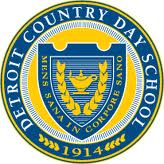Years ago Detroit Country Day School was one of the first schools in the state and the nation to introduce a “1:1” laptop program that required every student to have a laptop to access the internet, to create original work, and to facilitate student use of proprietary software programs that were part of our curriculum. We are proud to announce that for the 2013-2014 school year, DCDS is again leading the way in technology innovation with the next iteration of that program, our new “Bring Your Own Device” (BYOD) program utilizing a virtual desktop will provide greater freedom of choice for students and families, give greater accessibility to DCDS email and file storage, and effectively transform a wide variety of devices into tools that can be used to facilitate student learning.
This school year, the DCDS technology committee studied our laptop program and a variety of options and developing technology delivery systems. A few themes emerged as important to our faculty, students and families – efficiency, cost effectiveness, flexibility, and access. Our technology committee has unanimously endorsed the virtual desktop concept that effectively allows almost any device that accesses the internet to have the full functionality of a high powered laptop by accessing our virtual desktop. The virtual desktop is in the form of an icon that will be installed on student devices. When clicked on, the virtual desktop opens, giving the student full access to all programs and online resources necessary for DCDS students. The virtual desktop includes the entire Microsoft Office suite of applications, various proprietary software used by our faculty in their courses, full online access via our wireless internet, allows for remote access of all DCDS files saved on our server by students, and is fully protected by our firewalls and security systems.
The virtual desktop allows students to truly “Bring Their Own Devices”. Students can choose the device and platform that best suits them. There is no need for the purchase of expensive software suites, as DCDS has purchased licensing for that software through our virtual desktop. During our trials, we tested various laptops and tablets. For example, we tested our current laptops, and new devices such as the Microsoft Surface tablet, the ipad and ipad mini, and the Google Chromebook. All performed seamlessly with the virtual desktop application, and the virtual desktop gives greater functionality to these devices. For example, although ipads do not support Flash video in normal configuration, when a user accesses our virtual desktop via an ipad, because they are using a platform provided by our servers, while in the virtual desktop application, ipad users can access Flash video. Students who have recently purchased a laptop or new device need not purchase anything else – the virtual desktop can be installed on those devices by our help desk.
The bottom line is that beginning with the 2013-2014 school year, students may choose the device or laptop that best fits their needs as a user. All devices will print on our network, and all of these devices will run the necessary programs needed for students at DCDS as long as the device is connected to the internet. The only requirements of the school are that devices have at least a 7” screen, and include a keyboard (either touch screen or actual). While tablets such as the Surface and the ipad and ipad mini are certainly usable with the virtual desktop, we encourage that students and families experience these devices before deciding on them as typing on these devices is definitely different than typing on a laptop keyboard. Once a device has been purchased, simply contact the DCDS help desk for an appointment to install the virtual desktop.
“BYOD” initiatives represent a real trend in technology use in businesses and universities. This approach allows DCDS families to customize their device choices and purchases based on what fits each student’s needs and each family’s financial circumstances. Effectively the virtual desktop has the capacity to turn an inexpensive device into a high powered laptop. Because the programs will be powered by our school’s servers, and storage will be cloud based provided by DCDS, device speed and storage capacity become less significant issues for school related uses. Students may have needs outside of school for various interests and activities, and those should be taken into account with any device purchase.
Please access the portal for information about the virtual desktop program, including devices we know will work seamlessly. If you have any questions regarding the virtual desktop BYOD program, please contact Network Engineer Matt Nelson at matt.nelson@dcds.edu, or me at Tim.Bearden@dcds.edu . We are very excited about this new era of the 1:1 student to device program at Detroit Country Day School, and believe it gives our students and families yet another advantage as a member of the DCDS family.
